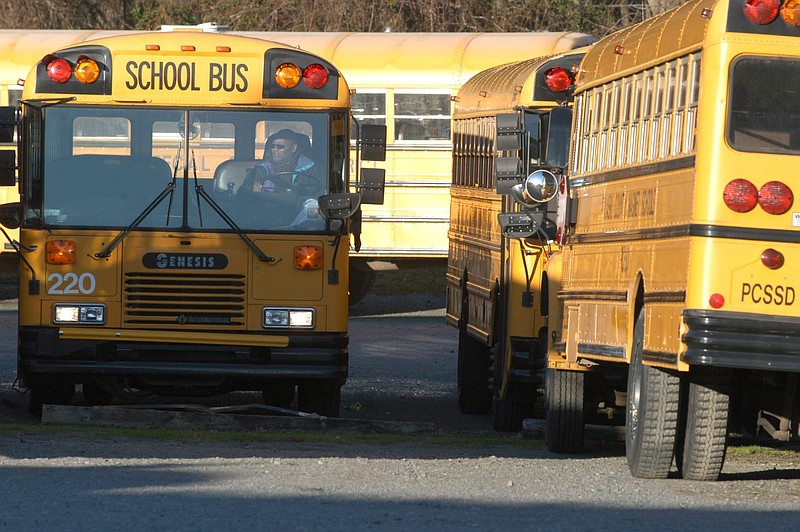LTITLE ROCK -- The School Board for the Pulaski County Special School District on Thursday approved a budget for the current 2021-22 school year that anticipates dipping into the district's balances by about $1.48 million to meet expenses, leaving about $17 million in reserves.
The district's budget, which is due to the Arkansas Division of Elementary and Secondary Education today, projects state and local revenue of $139,843,710 and expenditures of $141,325,125, which will result in a draw from the $18,503,175 in balances carried over from the 2020-21 school year.
However, the budget plan that incorporates special federal covid-19 relief money, will enable the district to:
• Propose employee salary increases later this month
• Transfer $2.5 million from its operating fund to its building fund
• Employ one teacher per elementary school and possibly others at the middle schools to aid in accelerating learning for pupils who have fallen behind academically because of covid-19 pandemic-related disruptions in 2019-20 and 2020-221 school years
• Support extra instructional time in core academic subjects at the middle schools with the use of block scheduling
• Acquire as many as eight new school buses, including two propane-fueled vehicles that are partially funded by grants.
The district is scheduled to receive just short of $40 million in federal covid-19 relief funding, some of which was spent in the past year and some which can be used in later years.
"We are really happy with these numbers," district Treasurer Jacqueline Rowlett told the board about the budget plans.
Rowlett said the district will use the special federal funding -- known as Elementary and Secondary Emergency Relief and the American Rescue Plan -- to cover a wide range of allowable expenses, which will ease the pressure on the use of local and state revenue.
Allowable use of the federal money can include technology purchases, staffing, building ventilation systems and curriculum-related supplies.
Board member Brian Maune asked Rowlett whether the district should be able to fully preserve its balances in light of receiving the special federal funding. Rowlett said that would be true except that the district is moving operating money to the building fund to aid in various projects, including track and field construction at Maumelle High.
The district's funding from the state has been affected by a 338-student decline in enrollment between 2019-20 and 2020-21 school years -- even though the per-student funding from the state increased, from $7,018 last school year to $7,182 this school year. The drop in the student count to 11,356 last year also reduced state funding in special categories such as alternative learning education and professional development.
Board members Maune, Linda Remele, Shelby Thomas, Stephen Delaney and Lindsey Gustafson voted for the budget. Board members Eli Keller and Tina Ward were absent from the special meeting.

